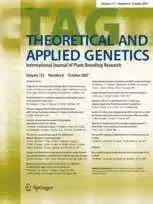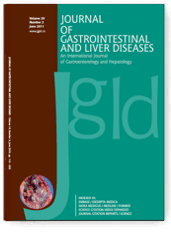Celiac.com 01/17/2010 - A team of researchers based in the Netherlands and in Germany recently found that abnormal T-Lymphocytes in refractory celiac disease may occur beyond small intestinal intraepithelia. The research team was made up of W.H.M. Verbeek, B.M.E. von Blomberg, V.M.H. Coupe, and S. Daum, C.J.J. Mulder, and M.W.J. Schreurs.
The team members are associated with the Departments of Gastroenterology, Pathology, Epidemiology and Biostatistics at VU University Medical Centre, Amsterdam, The Netherlands, and with the Department of Medicine I, Gastroenterology, Infectious Diseases & Rheumatology at Charite Universitatsmedizin, Campus Benjamin Franklin, in Berlin, Germany.
Celiac.com Sponsor (A12):
Refractory celiac disease (RCD) is characterized by persistent mucosal pathology despite a strict gluten free diet. Patients with RCD type II show phenotypically abnormal (CD71CD3-CD4/8-cytoplasmicCD31) T-lymphocytes within the intraepitelial lymphocyte (IEL) population in the small intestine, with 50–60% of these patients developing an enteropathy associated T-cell lymphoma (EATL).
The goal of the study was to determine whether abnormal T-lymphocytes in RCD II can be detected in other parts of the small intestinal mucosa besides the intraepithelial compartment. Additionally, the presence of aberrant
T-lymphocytes was analyzed in two RCD II patients that developed atypical skin lesions.
Researchers conducted multi-parameter flow cytometric immunophenotyping on both IEL and lamina propria lymphocyte (LPL) cell suspensions, isolated from small bowel biopsy specimens of RCD II patients (n 5 14), and on cutaneous lymphocytes isolated from skin-lesion biopsy specimens of RCD II patients (n 5 2). They also carried out immunofluorescence analysis of frozen RCD II derived small intestinal biopsies.
The results clearly show that abnormal T-lymphocytes may develop in both the IEL and the LPL compartments of RCD II derived small intestinal biopsies.
Indeed, even though the highest percentages are always found in the IEL compartment, abnormal LPL can exceed 20% of total LPL in half of patients with RCD II.
Interestingly, cutaneous lymphocytes isolated from atypical skin lesions that developed in some RCD II patients showed a similar abnormal immunophenotype as found in the intestinal mucosa.
In RCD II, the abnormal T-lymphocytes may also manifest in the sub-epithelial layer of the small intestinal mucosa, in the lamina propria, or even in locations completely outside the intestine, including the skin.
Whether this finding indicates a passive overflow from the intestinal epithelium or active movement towards other anatomical locations remains to be determined.
Source: Open Original Shared Link







Recommended Comments
There are no comments to display.